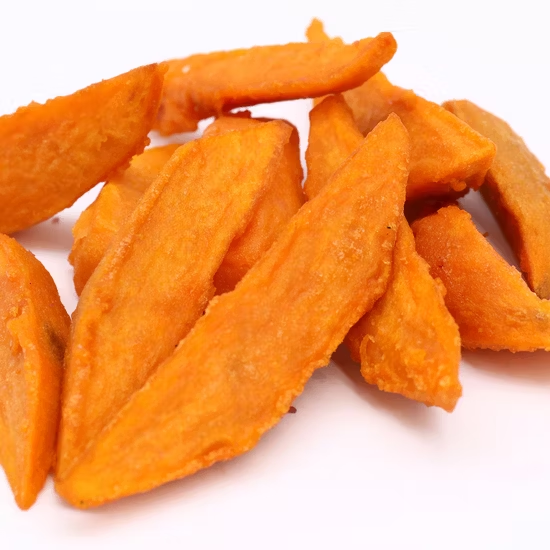Building Bridges of Assurance: How Certifications Strengthen Trust in Sweet Potato Exporting Companies?
Introduction
In the dynamic and competitive world of international food trade, trust is the bedrock upon which successful long-term partnerships are built. For buyers seeking high-quality sweet potatoes, whether for fresh consumption, processing into snacks, or culinary applications, assurance regarding product safety, quality, and ethical sourcing is paramount. This becomes even more critical when navigating complex global supply chains. Understanding How Certifications Strengthen Trust in Sweet Potato Exporting Companies? is not just a strategic advantage; it’s a fundamental requirement. Certifications serve as independent verification of an exporter’s commitment to stringent standards, transforming abstract promises into tangible proof. They cut through the noise, providing clear evidence of compliance and dedication. Exploring How Certifications Strengthen Trust in Sweet Potato Exporting Companies? reveals the direct correlation between verified practices and buyer confidence, making certified suppliers the preferred choice in a discerning global market.
Certifications for Quality & Safety: A Pillar for frozen sweet potato fries suppliers
Adhering to International Food Safety Standards
For any buyer, especially those sourcing for sensitive markets or demanding processing operations, such as major frozen sweet potato fries suppliers, the primary concern is always product safety and quality. International food safety certifications provide an indispensable layer of assurance that sweet potatoes meet rigorous global benchmarks from farm to port. These certifications, like GlobalGAP, HACCP, and ISO 22000, are not just arbitrary labels; they represent a comprehensive system of checks and balances designed to minimize risks, ensure hygienic practices, and guarantee the integrity of the product. By investing in and adhering to these standards, sweet potato exporters demonstrate an unwavering commitment to delivering safe, high-quality produce. This commitment is particularly vital for operations that transform raw sweet potatoes into value-added products, where a single lapse in safety could have far-reaching consequences for frozen sweet potato fries suppliers and their customers. It solidifies a supplier’s reputation and builds confidence.
- GlobalGAP Certification: Ensures good agricultural practices, minimizing environmental impact and safeguarding worker welfare.
- HACCP (Hazard Analysis and Critical Control Points): A systematic preventative approach to food safety from biological, chemical, and physical hazards.
- ISO 22000: Specifies requirements for a food safety management system that combines generally recognized key elements to ensure food safety along the food chain.
- Regular Third-Party Audits: Provides objective verification of compliance and continuous improvement.
Sustainable Sourcing & Ethics: Key for frozen sweet potato fries suppliers
Commitment to Environmental and Social Responsibility
Beyond basic safety and quality, modern buyers are increasingly scrutinizing the ethical and environmental footprint of their supply chains. This shift is particularly noticeable among consumers, and subsequently, among large-scale buyers including prominent frozen sweet potato fries suppliers, who prioritize sustainability and social responsibility. Certifications such as Organic, Fair Trade, and those demonstrating adherence to environmental management systems, offer tangible proof of an exporter’s commitment to these values. Organic certification assures buyers that sweet potatoes are grown without synthetic pesticides or fertilizers, appealing to a growing segment of health-conscious markets. Fair Trade certifications ensure that farmers and workers receive fair compensation and work in safe conditions, promoting social equity within the supply chain. These ethical certifications not only enhance brand image but also resonate deeply with conscientious buyers, differentiating an exporter in a crowded market. Partnering with a supplier committed to these principles is a significant advantage for frozen sweet potato fries suppliers seeking to meet evolving consumer demands and corporate social responsibility goals.
- Organic Certification: Verifies cultivation practices that avoid synthetic chemicals, promoting ecological balance.
- Fair Trade Certification: Guarantees fair wages, safe working conditions, and community development.
- Environmental Management Systems (e.g., ISO 14001): Demonstrates a commitment to reducing environmental impact.
- Social Accountability Certifications (e.g., SA8000): Ensures ethical treatment of workers and human rights.
Streamlined Export & Market Access for frozen sweet potato fries suppliers
Facilitating Global Trade through Recognized Standards
The journey of sweet potatoes from farm to international markets is fraught with regulatory hurdles, customs procedures, and logistical complexities. Certifications play a pivotal role in streamlining this process, offering an efficient pathway to global trade. For major importers and frozen sweet potato fries suppliers, working with certified exporters means fewer delays, reduced risks of rejection, and smoother customs clearance. Phytosanitary certificates, for instance, are crucial for demonstrating the health of plant products and compliance with destination country import regulations, preventing the introduction of pests and diseases. Similarly, certifications related to supply chain security, such as C-TPAT (Customs-Trade Partnership Against Terrorism) or AEO (Authorized Economic Operator) status, expedite customs processing by identifying reliable partners in the international supply chain. By proactively obtaining these certifications, sweet potato exporters not only enhance their credibility but also demonstrate their operational efficiency and readiness to meet diverse market requirements, making them highly attractive partners for discerning frozen sweet potato fries suppliers aiming for consistent and uninterrupted supply.
- Phytosanitary Certificates: Official documents verifying plant health and compliance with import regulations.
- Country-Specific Import Permits & Health Certificates: Tailored documentation for specific market access.
- C-TPAT/AEO Status: Supply chain security programs that expedite customs processing.
- Quality Certificates (e.g., Certificate of Origin, Inspection Certificates): Confirm product specifications and origin.
Conclusion
In conclusion, the question of How Certifications Strengthen Trust in Sweet Potato Exporting Companies? is answered unequivocally through their multifaceted benefits. From guaranteeing product safety and quality to fostering ethical and sustainable practices, and ultimately, to streamlining the complexities of global trade, certifications are indispensable tools for building and maintaining buyer confidence. They are not merely regulatory burdens but strategic investments that differentiate an exporter in a competitive market, ensuring long-term relationships built on transparency and reliability. For businesses looking to secure a consistent supply of premium sweet potatoes, prioritizing certified suppliers is a prudent decision that mitigates risks and assures value. We understand the critical importance of these standards in the global supply chain, especially for demanding clients like frozen sweet potato fries suppliers. When seeking a trusted partner for your sweet potato requirements, look no further. IFCG International Food & Consumable Goods – Egypt S.A.E stands as the best sweet potato suppliers and manufacturers, committed to delivering excellence through unwavering adherence to international certifications and quality.


